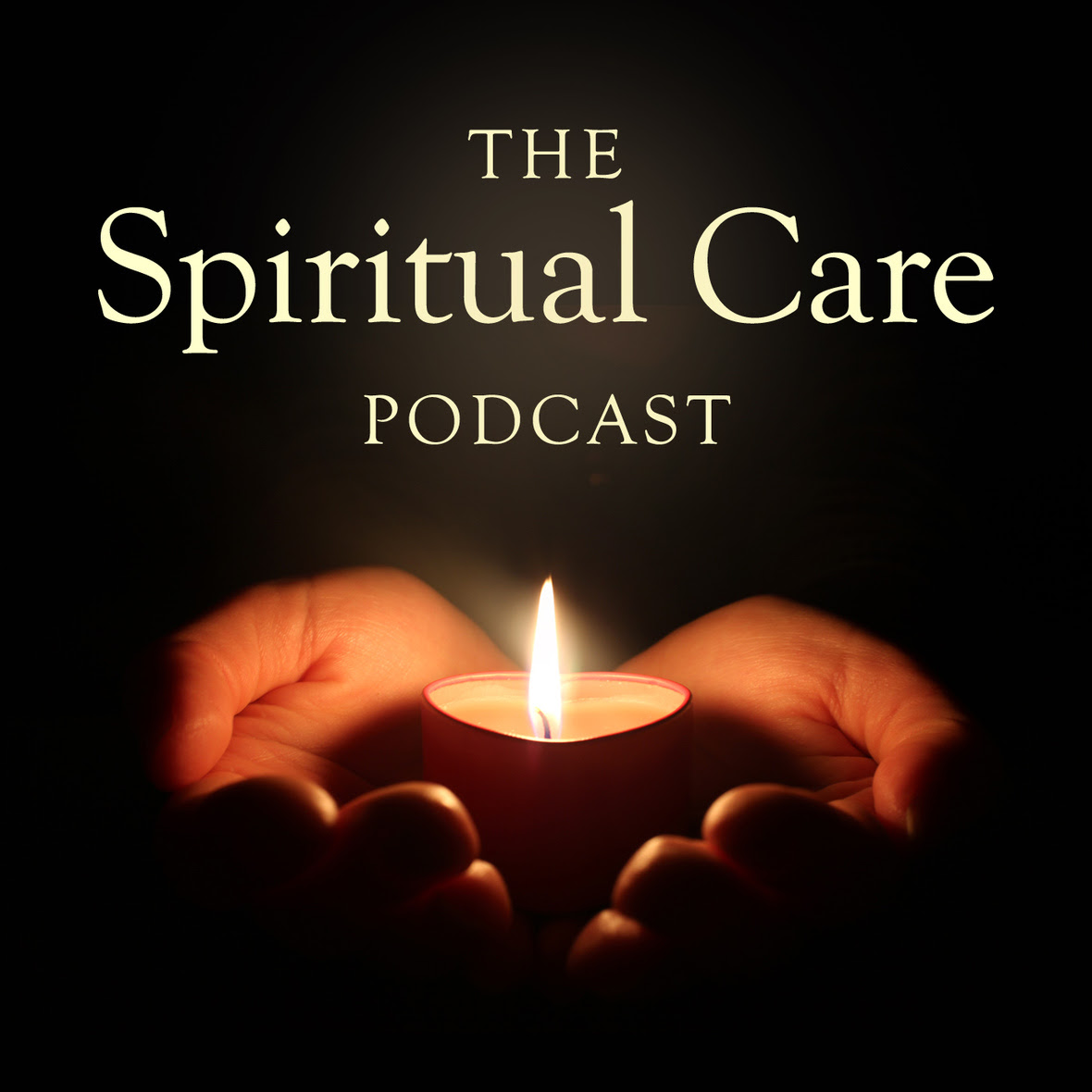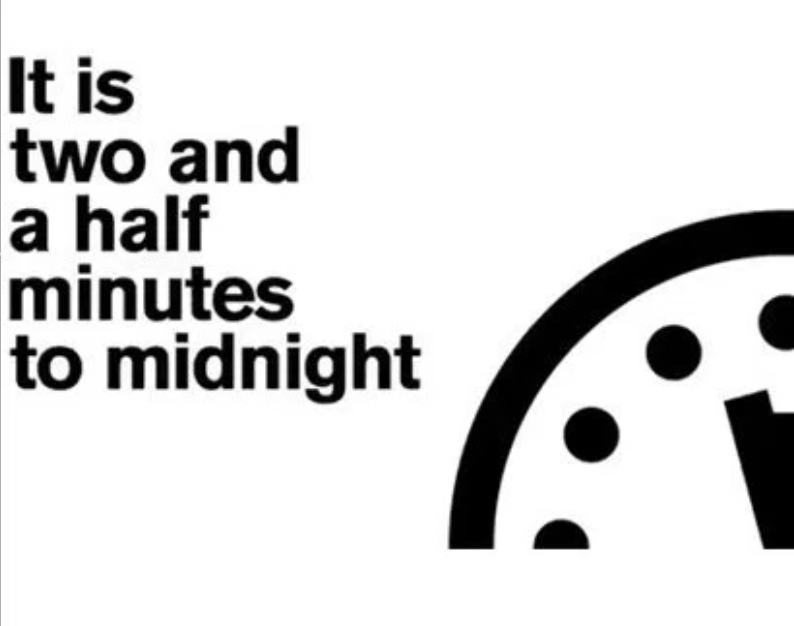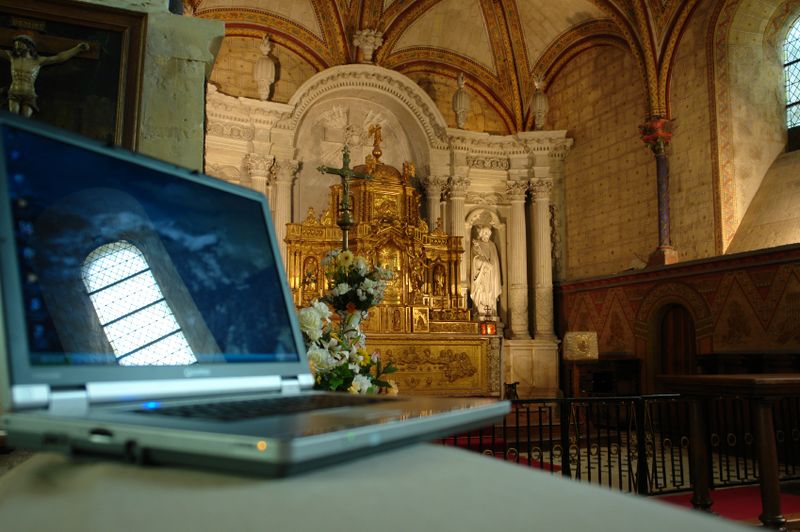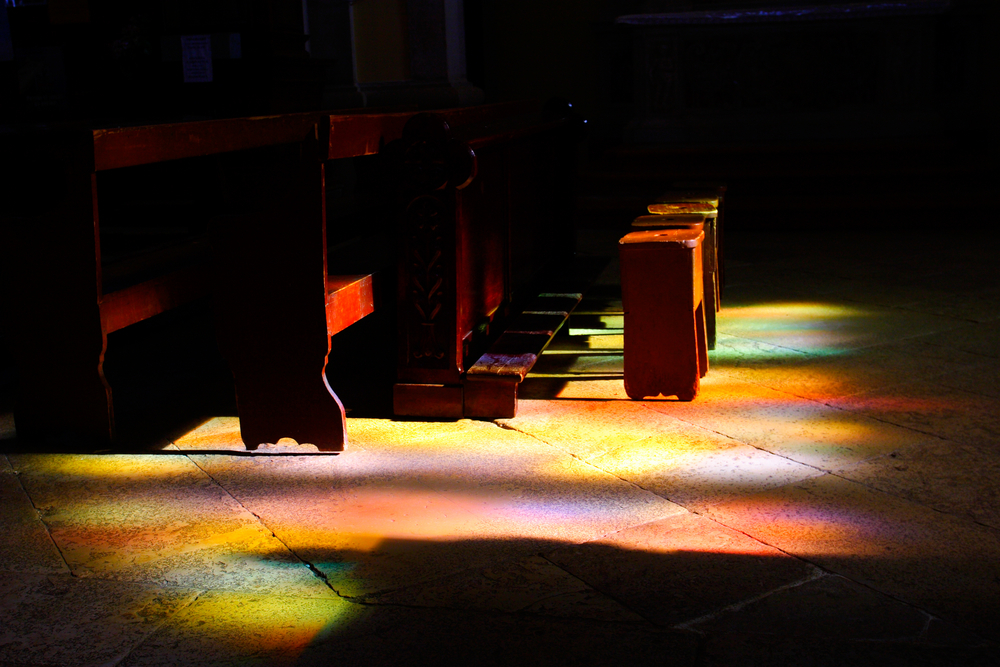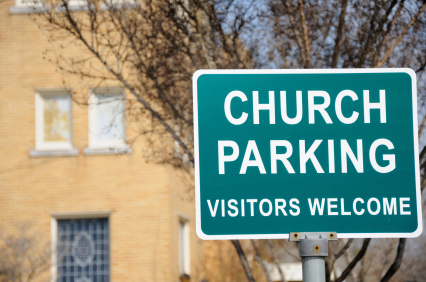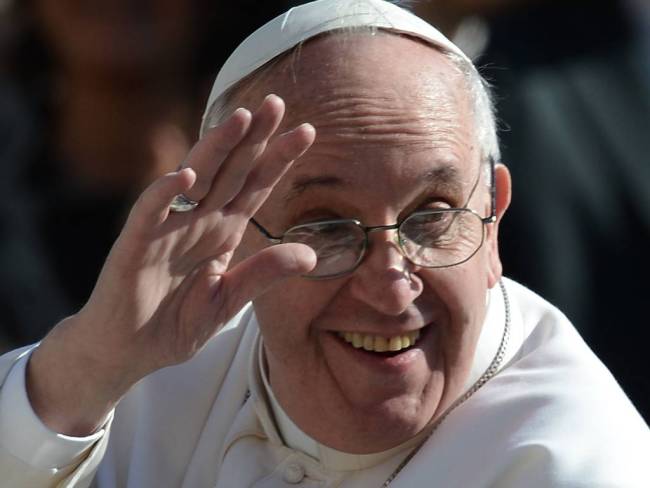A new series free from Humankind
We’re excited to let you know about our new podcast! You’ll hear stories of spiritual caregivers (chaplains, medical professionals, social workers and others) who strive to be a peaceful, healing presence on the front lines of many social and personal concerns.
For 70 years, The Bulletin of the Atomic Scientists has maintained the Doomsday Clock, a graphic representation of the level of danger to the planet from nuclear weapons and other threats. Partly because of the election of Donald Trump, it has moved the clock from 3 to 2.5 minutes from midnight. The danger has been dire for many decades, and now it is worse - but only by a small increment.
By Schuyler Brown and Daniel Pinchbeck for HighExistence
Communication is the tool we use to navigate change in this perishable, impermanent world. We talk about what’s happening and what’s coming. We use words to rally and activate citizens; to inform and educate people; to alleviate or aggravate fears, depending on our intentions. Humans use language to make sense of things — even those things that are happening at a scale beyond our grasp. As Wittgenstein said, “The limits of my language mean the limits of my world.” And so, while it may seem like rearranging deck chairs on the Titanic (let’s hope not!), reevaluating the language of climate change can offer a fresh perspective on where we are and where we’re headed.
Hardly a day goes by when I do not encounter at least one article bemoaning the "tragedy" brought upon us by smart phones and social media. If you believe the hype, today's youth are going to hell in a hand basket, lured by the incessant clicking and swiping of their ever-evolving digital devices. We are losing our very ability to interact with the people around us, these doomsday prophets warn.
BY SPENCER DEW
All maps are subjective. They frame the selected information they offer to their viewers. By such framing, they tell stories, advance arguments. For those of us who study religion, necessarily concerned with how humans create and employ categories, maps serve as useful examples of that practice—maps on religion, doubly so.
ny church can grow. It won’t happen just by opening the doors on Sunday and welcoming whoever shows up. Growth isn't that easy or passive. But growth can happen if leaders are willing to work at it, to use best practices and best tools, and to change whatever gets in their way. That’s a tall order, of course, because most established institutions struggle with change and resist doing more than the known and the minimum.
Can people who draw energy primarily from within themselves be effective as entrepreneurial church leaders? In a word, yes. For the entrepreneurial role isn’t about extroversion or introversion. In fact, some of the most effective entrepreneurs in business are introverts. Bill Gates, of Microsoft, for example. Also Mark Zuckerberg, of Facebook; Marissa Meyer, of Yahoo; investor Warren Buffett.
The work of the religious professional must look “beyond the walls” of the church, beyond the comfortable conversations we have with people we know, beyond in-house concerns, beyond the shared language of our years together. To engage with the larger world beyond our walls, we can’t just send more people our latest in-house, inward-facing conversations. We need to address the needs, concerns, yearnings, questions and personalities of that larger world.
You should be spending as much as 50% of your time on communications, I told a group of clergy at the Kenyon Institute’s “Beyond Walls” writing seminar for religious professionals. That means time spent blogging to the vast world outside your walls, engaging with prospects, and communicating with your flocks. It means email campaigns, as well as ad hoc emailing. It means creative use of social media, especially Facebook. It means messaging. But always, three audiences, and distinct messages tailored to the questions, hungers, issues, yearnings that actually occupy each audience.
A reader asked for tech guidance. “I know you make tech choices thoughtfully and from experience,” he said. “So, I'm always happy when you share your knowledge of particular software/apps, including the pros and cons of each.” I am happy to oblige, for technology is a critical tool in our respective work. For me, the key is usability.
Let’s talk about scheduling. It’s the bane of any complex organization, and yet handling schedules poorly is guaranteed to hurt and offend constituents.
By Katie at Wellness Mama
What is on your Christmas list this year? What are you getting for friends and family? Check out this great resource compiled by Katie at Wellness Mama of natural and organic gifts!
Ruminating over this Sunday's prescribed reading from Job 38, my mind harkens back to 2012, when I had the privilege of attending a series of lectures given by the great Phyllis Tickle who described the current reformation that the church is experiencing as part of a cultural phenomenon that happens about every 500 years, which she calls "The Great Emergence". When asked what skills religious leaders will need to navigate the information age, Tickle insisted that the best advice we could give to anyone considering a religious vocation was that they should study physics.
By Mark Hertsgaard
Everything is coming together as everything is coming apart.” So said Jamie Henn, strategy and communications director at 350.org, after he and the other organizers of the People’s Climate March put hundreds of thousands of people on the streets of New York City in September 2014 for the largest climate demonstration in history. Henn’s observation has grown even more apt over the last 14 months, especially the “coming together” part. Interviewed in Germany during the final negotiating session before the Paris climate summit in December, Henn predicted that “Paris won’t deliver everything we need, but the dominoes that will take out the fossil-fuel industry have already started to fall.
In Pope Francis’ recent environmental encyclical and in his many pronouncements since them, most notably his address to the US Congress and at the United Nations, he was in effect telling the world that the time has come for all of us to take a long hard look at a false god that has, since the beginning of the Industrial Revolution been and continues to be venerated by so many.
Want some advice on how to grow your church? Hire a communications director. Yes, you heard that right. A communications director. Not an
If church leaders want people to "buy" their "goods and services' -- come to worship, take a class, engage with the community, grow in faith, serve God -- they can't just open the door on Sunday or send out a weekly newsletter stuffed with announcements. They need to do solid marketing. They need to do the basics as outlined above: catch people's attention, explain offerings, present opportunities to engage, lead people to various forms of participation, form relationships, provide customer service.
The S curve -- shows what happens as a new idea takes hold, or a compelling vision, or fresh leadership, or a new mission thrust. If the idea or vision has legs, it will start slowly, then gather momentum as people buy into it and become excited by it. This new vision captures many imaginations. It puts into action the deepest values of the organization -- in this case, a congregation.
People connect with you on a spectrum, ranging from minimal awareness to deep engagement. Connecting with a church is a complicated process that requires multiple pathways, rather than a simple but misleading distinction between member and non-member (or "unchurched").
Pope Francis and the Environment: Yale Examines Historic Climate Encyclical. What follows are the transcripts from the Panel on the Papal Encyclical held at Yale University on April 8, 2015.
Any enterprise needs fresh people. Without 20% new members every year, a church won’t keep up with attrition. Ideas will go stale. Even regulars will lose interest. Your goal is to draw people into the space where you can “touch” them, that is, get their email address and start sending them pertinent emails. Your blogpost, therefore, should have a “call to action” link that invites them to read more, download a paper on this topic, subscribe to your blog – not attend your church, for that is way premature.
Here are three high-value tasks for church leaders to undertake in summer -- in and around your highest priority: taking a
Just when I had concluded that Jeb Bush was the likely Republican nominee for president in 2016, he said something that dumbfounded me: "I hope I'm not going to get castigated for saying this by my priest back home, but I don't get economic policy from my bishops or my cardinals or my pope. And I'd like to see what [the pope] says as it relates to climate change and how that connects to these broader, deeper issues before I pass judgment. But I think religion ought to be about making us better as people and less about things that end up getting in the political realm. " (New York Times, June 17, 2015)
Commentary on the Revised Common Lectionary for an Emerging Christianity (Volume 2)
I grew up long before computers showed us how they could handle millions of requests all at once. So in college I began to have serious questions whenever our preacher asked everyone to bow their heads and say a silent prayer to God. And our preachers back in the 50’s and 60’s did that a lot. How could God hear all those prayers being offered up at the same time? There were several hundred at our church and many more throughout Tupelo who were in church from 11 until noon on Sunday, plus in our state and country and around the world. Lots of prayers were being offered up all at once, so how did God sort them all out.
Since 9/11 Americans have largely accepted the idea that national security requires a trade-off between government power and freedom. However, recent revelations about the extent of government surveillance have raised serious questions about overreach, abuse of power, and the limits of democracy. How should people of faith respond to these revelations? Amid wide-spread public apathy over drone warfare, surveillance, and open-ended wars on "terror," how can faith leaders provide stronger moral leadership? Do our faith traditions have anything distinctive to say in relation to alleged government overreach, whether by the NSA or the CIA? And how do we assess the ethics of those who expose secret government operations in the name of preventing abuse?
Millions of children in the Northeast quadrant of the United States will have to miss their annual spook-fest and candy shake-down on October 31 this year. Something far more terrifying than any Halloween slasher film rose up from the tropics and swooped onto the mainland in the last few days of October. Like a fell creature from JRR Tolkien’s Middle Earth, the “Frankenstorm” named Sandy, spinning counter-clockwise (the Devil’s own widdershins), spread its Nazgûl wings from North Carolina to the Great Lakes. What began as a late-season Hurricane (strange enough) was sucked into an early Arctic cold front, and created a weather system never before experienced in recorded human time.
All across the world, people are transforming the food system. As we gain more insight into the industrial food complex, people are turning away from industrial agriculture toward sustainable and local alternatives. Why is this an issue that matters to progressive Christians? There are many reasons.
GMOs can be toxic, and they can cause food allergies. There has been relatively little testing done on humans and yet these products are reaching our store shelves and in the USA, foods containing GMO ingredients are not labeled as they are in Europe and even in China. In our country, where democracy is demonstrably for sale, giant food corporations have so much influence on our government that we continue to subsidize the foods that make us fat, diabetic and give us heart disease but we do not subsidize the production of the foods that would make us more healthy. We have given research grants to create these "frankenfoods" and then protected manufacturers from legal liability for the problems they create.
(Friends: Please "LIKE" my Facebook page for my new book, HITCHHIKING TO ALASKA - there, you can contribute to an ongoing dialogue about
From SoulSeeds.Com
Your vision doesn’t have to be pretty, and it doesn’t have to conform to other peoples’ expectations. It just has to be clear. What if your vision is lost in a blizzard like mind fog? It’s sometimes hard to see past the demands of the moment to imagine life in the future.

